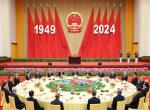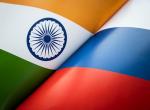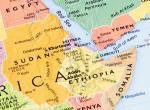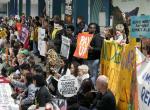As the world’s geopolitics violently swings, contending parties are jostling for their own space in this geostrategic contestation. In this matrix of great power game, the South Pacific islands north of Australia have assumed sudden importance. For no fault of theirs, these island nations now find themselves as the fertile playground for great power game and therefore face critical choices as strategic interests of big stakeholders come to play. Traditionally, the US and Australia remained their benefactors. Now suddenly China jumped into the fray to have its own footprint. India being a part of the Quad and having common interests with countries sharing common values cannot be left behind. Against this short background, Prime Minister Narendra Modi’s visit to Papua New Guinea (PNG) on the second leg of his 6-day- three nations visit – Japan, Papua New Guinea and Australia – need critical examination.
India being a member of the Quad is an important partner to work for peace and stability in the Indo-Pacific. The South Pacific islands are seen as an extended neighbourhood of the Indo-Pacific, much beyond the Southeast Asia and therefore it is prudent that a single nation must not be allowed to dictate its terms suitable to its own interests and overlooking the interests of the island nations. It is in this broad perspective Prime Minister Modi’s visit to the PNG assumes added significance. This article addresses to some of the issues of this important visit.
Modi was the first Indian Prime Minister to visit PNG. It soon transpired that this Pacific island nation attaches so much importance to its relations with India. This was discernible from the way Modi was received and that PNG made an exception to give a ceremonial welcome after sunset, a practice PNG generally does not follow. The kind of reverence with which Modi was received could be deciphered from the manner in which PNG Prime Minister James Marape received him by touching his feet as a mark of respect when Modi landed at Port Moresby airport.[1] This must have embarrassed Modi but nevertheless he reciprocated Marape’s gesture by patting his back before giving him a warm hug. This gesture by Marape attracted significant media attention. The truism is that Marape’s gesture could be a reflection of India’s growing global status.
The purpose of Modi’s visit was to strengthen cooperation with the 14 Pacific island nations. Speaking at the Forum for India-Pacific Islands Cooperation (FIPIC) summit in Port Moresby, Modi told the leaders that India would be a “reliable development partner”. This was an oblique reference to China, which has been trying to expand its footprints in the South Pacific by luring some island nations to switch diplomatic allegiance from Taiwan to China and also by signing security agreements, thereby taking the signatory countries into its own orbit. Such a strategy by China has alarmed Australia and the US and both these countries swung into effecting a counterstrategy to check China’s advance into this region.
Modi invoked the adage that ‘a friend in need is a friend indeed’, proving thereby that India stood with its Pacific island friends during the challenging time of Covid-19 pandemic by providing vaccines and essential medicines, besides wheat, sugar and other materials within its capabilities.
PNG is important for India because of its strategic location. As said, PNG and other 13 island nations are located north of Australia where China is trying to expand its influence and Australia and the US are seeking to counter it. China has used its strategy of making investments in infrastructure projects and schools with the objective to gain military and diplomatic leverage in the island nations. When in 2022 China signed a security pact with Solomon Islands, alarm bells were heard all over the region.[2] The people of the Pacific island nations are quite sensitive about outside powers’ involvement in the region’s security matters and therefore fiercely oppose the militarisation of the Pacific.
As a peace-loving country committed to work to diffuse tensions wherever those occur, India is also keen to boost ties with the Pacific island nations. The cluster of 14 island nations dotting the South-western Pacific are PNG, Solomon Islands, Cook Islands, Fiji, Kiribati, the Republic of Marshall Islands, Micronesia, Nauru, Niue, Palau, Samoa, Tonga, Tuvalu and Vanuatu. There is a sizable Indian diaspora in these island nations with whom India is keen to leverage. During Prime Minister Modi’s historic visit to Fiji in 2014 the first Summit of the FIPIC was launched on 19 November 2014 in Suva. This was in response to China’s planned efforts to enhance its military and diplomatic influence in the region. So, Modi’s visit to Fiji in 2014 and the present visit to PNG are in line with this objective to engage with the Pacific island nations. Following first FIPIC summit held in Fiji in 2014, the second was held Jaipur on 21 August 2015. During the two summits, India announced a range of initiatives to assist the PICs in tackling challenges faced by their peoples, and for their well-being and development. The issues discussed to the third summit during PM Modi’s visit in May 2023 covered how to strengthen partnership across various sectors, including trade and investment, health, capacity building and skill development and information technology.
For record, PNG is the world’s third largest island nation, a lower middle-income country with a predominantly rural population. Like India, it is linguistically most diverse with more than 800 languages spoken. The population of 9,819,350 survives mainly on agriculture with little contact with the outside world. India’s interaction with the PICs has traditionally focussed on its engagement with Fiji and PNG, mainly due to the presence of a large diaspora. About 37 per cent of Fiji’s 849,000 population (2009 estimates) is of Indian origin and about 3,000 Indians live in PNG. The peoples are sensitive to foreign presence because of past experience of the nation. Since 1880, parts of the country were ruled by Germany, Australia and Britain till September 1975 when the island nation got independence. PNG is a part of the Commonwealth and King Charles III is its official King, who is represented by the Governor General. Modi also met the Governor General Bob Dadae and discussed ways to further strengthen bilateral partnership across multiple sectors.
12-step Action Plan
PM Modi announced a 12-step action plan in a range of areas including health care, renewable energy, and cyber security to propel India’s partnership with the Pacific island nations.[3] This included a 100-bed regional super specialty hospital in Fiji, setting up a regional IT and cyber security training hub in PNG, Sagar Amrut Scholarships-100 scholarships in the next five years, and Jaipur foot camp in PNG in 2023. The prosthetic limbs are offered in Jaipur foot camps. Two camps shall start from 2024 every year in the Pacific island countries. Others included FIPIC SME (Small and Medium Enterprise) development project, a solar project for government buildings, desalination units for drinking water, supplying sea ambulances, setting up dialysis units and emergency helpline number in all the 14 Pacific island countries. Under the SME scheme, machinery and technology shall be provided. Capacity building programmes will be conducted to enhance capabilities.
Stressing India’s perspective is based on human values, Modi’s remarks that the Pacific island nations are “large ocean countries and not small island states” must have pleased the 14 leaders present at the FIPIC.
The super speciality cardiology hospital in Fiji will be equipped with trained staff, modern facilities and infrastructure, serving as a lifeline for the entire region. PM Modi announced that the Indian government will bear the full cost of this green field project. He also proposed to set up Jan Aushadi Centers and Yoga Centres in the region. At present more than 1,800 high-quality generic medicines are provided to people in India at affordable prices, including anti-diabetes medicines at 90 per cent lower cost at Jan Aushadhi Centres compared to the market prices. PM Modi offered to make such medicines available to the 14 Pacific Island nations through the Jan Aushadhi Centres. Among others, the offer also included establishing yoga centres to promote its benefits.
PM Modi also announced that the Centre of Excellence for IT in PNG will be upgraded and transformed into a Regional Information Technology and Cyber-security Hub.
It thus transpires that India’s engagement with the 14 Pacific island countries (PICs) is part of India’s Act East Policy (AEP). Under the rubric of the AEP, India thus initiated the FIPIC and during Modi’s visit the third in the series was held.
Thus it is quite evident that the centrality of the Pacific Islands is being tested by great power contestations with China on one side and the US, Australia and now India joining the fray on the other. It is to be seen how this new geopolitical battleground in the Pacific with multiple players serve the interests of the small “oceanic countries”. Modi’s visit to the region was thus intended to establish a reassuring presence not predicated on chequebook diplomacy unlike China but an amplification of the voice of the Global South by providing a viable and friendly option to the PICs so that these island nations can avoid binary choices between the major power blocs.[4]
A grateful PNG conferred their highest civilian honour on Modi. In a special ceremony at the Government House, Bob Dadae, Governor-General of the PNG conferred Modi with the Grand Companion of the Order of Logohu (GCL). Modi also released the Tamil classic Thirukkural in Tok Pisin, PNG’s official language, to bring the Indian thought and culture closer to the people of the country. Co-authored by Subha Sasindran and Governor Sasindran Muthuvel of West New Britain Province, Thirukkural is a collection of couplets on ethnics, political and economic matters, and love, written by poet Thiruvalluvar.[5]
Great Power Games
As said, the PICs are wary of great power games in the Pacific island region and oppose the militarisation of the Pacific as Washington vies with China’s expanding footprint in the Pacific region. Since US President Joe Biden had to return to the US for talks on the debt ceiling crisis, thereby leaving Australian Prime Minister Albanese to cancel the Quad summit, Secretary of State Antony Blinken had to stand in for President Biden. Therefore, with an eye of China, Biden signed a defence pact with PNG giving the American forces access to the island country’s airfields and ports.[6] The US-PNG maritime deal will allow the US Coast Guard to partner with the Pacific nation to counter illegal fishing and drug smuggling. Geopolitical rivalry between the US and China stems from the fact that the PICs are located at the crossroads of strategically important maritime trade corridors. The Hindustan Times aptly observed in an editorial that as the islands sit on vital sea routes and might hold the key in the battle for the Indo-Pacific, it is crucial to counter China and check its influence and maritime footprint.[7]
Until recently, the South Pacific was considered to be under US influence, managed under the Australia, New Zealand and US (ANZUS) trilateral military alliance. Because of the past experience, the people are opposed to the militarisation of the region and therefore the defence pact between the US and PNG sparked student protests in PNG’s second largest city Lae. The PNG PM allayed such fears and defended the pact as being in national interest. Against this background, India’s engagement strategy in the region and increasing focus on the Indo-Pacific can have sobering influence on the evolving geostrategic contestation as India’s focus is human-centric with developmental projects as demonstrated by PM Modi’s 12-point programme of support.
India is aware that the US along with its allies is wary of China’s increasing footprint in the South Pacific. This has caused alarm in neighbouring Australia and New Zealand as well. China’s loans and grants have increased compared to what the US or Australia has put in the PICs. China is the biggest trading partner of the Pacific Islands Forum after Australia and New Zealand. Therefore, without naming China, Modi underlined that India has resolved to stand with its Pacific island friends during challenging times. He further assured that India respects the priorities of the island nations and is happy to be their development partner. After assuming the presidency of the G-20, India has added responsibility to focus on the Global South and Modi’s foray to the South Pacific Island nation is a demonstration of this commitment. PNG PM Marape’s remarks that Modi as the leader of the Global South offers a third big voice of the Global North was apt and reflected the sentiments of the developing countries when India convened the Voice of Global South Summit in January 2023.
Certain sections in the PICs might not endorse Marape’s observations but the fact remains that with their colonial past, there is a fierce commitment to maintain strategic autonomy and not formally align with any power blocs. India therefore fits in well with the foreign policy goals and ambitions of the PICs. While India’s latest engagement strategy with the PICs is laudable, there are some criticisms that India needs to answer for instance, why it did not articulate clearly its strategy to cooperate with established regional partners such as Australia, New Zealand, the US, Japan, France and New Zealand. Questions are being asked as to why the Port Moresby summit excluded Australia, New Zealand, the French territories of New Caledonia and French Polynesia, even though all are members of the Pacific Islands Forum (PIF), the region’s premier multilateral institution.[8]
The PIF leaders in their 2019 meeting in Tuvalu had endorsed the development of the 2050 Strategy for the Blue Pacific Continent.[9] During the meeting, the leaders highlighted their concerns for the region’s enduring challenges such as climate change related impacts, coupled with the intensification of geostrategic competition, exacerbating the region’s existing vulnerabilities. India is likely to be asked to explain why it excluded four of its members from the PNG summit as it is feared to be perceived as lack of commitments to its principles to engage with the region. Japan holding its regular meeting with Pacific island leaders when all 18 PIF members are invited is likely to be cited to justify the criticism. Even South Korea hosted the inaugural Korea-Pacific Islands Summit in Seoul from 29-30 May with participation of leaders of all 18 PIF nations[10] to discuss ways to expand cooperation between South Korea and the region. This too can put pressure on India to explain why it excluded the four island nations. Irrespective of the minor criticism, the overwhelming opinion in the PICs is that India is welcome as a potential counterbalance to the increasingly polarised strategic competition between the US and China in the region.
References
[1] “Papua New Guinea’s PM touches Modi’s
feet: Why this island country is important for India”, Indian Express, 22 May 2023, https://indianexpress.com/article/explained/papua-new-guinea-narendra-modi-8623317/
[2]See, Rajaram Panda, “The China-Solomon Islands Security Pact Roils the Region”, Global Asia (Seoul) Vol. 17, no. 2, June 2022, pp. 65-72, https://www.globalasia.org/v17no2/feature/chinas-security-pact-with-the-solomon-islands-roils-the-region_rajaram-panda
[3] “PM Modi announced 12-point new development plan for Pacific Island nations at FIPIC”, 23 May 2023, https://www.dnaindia.com/india/report-pm-modi-announces-12-point-new-development-plan-for-pacific-island-nations-at-fipic-3043956
[4]Shubhajit Roy, “India & South Pacific: Key takeaways from PM Modi’s visit; China’s diplomatic presence”, Indian Express, 26 May 2023, https://indianexpress.com/article/explained/india-and-the-south-pacific-papua-new-guinea-james-marape-narendra-modi-8629395/
[5] “Fiji & PNG confer top civilian awards on PM”, Times of India, 24 May 2023.
[6] “With eye on China, US signs def, maritime pact with PNG”, Times of India, 23 May 2023.
[7] “Why the Pacific islands are key”, The Hindustan Times, editorial, 27 May 2023.
[8]Joanne Wallis and Premesha Saha, “Modi in Papua New Guinea: leader of the global south or Quad partner?”, 24 May 2023, https://www.aspistrategist.org.au/modi-in-papua-new-guinea-leader-of-the-global-south-or-quad-partner/?utm_medium=email&utm_campaign=Weekly%20The%20Strategist&utm_content=W
[9] “The 2050 Strategy for the Blue Pacific Continent”, https://www.forumsec.org/2050strategy/
[10]Lee Hayye-ah, “Yoon to host inaugural Korea-Pacific Islands Summit in May”, 18 April 2023, https://en.yna.co.kr/view/AEN20230418006200315
(The paper is the author’s individual scholastic articulation. The author certifies that the article/paper is original in content, unpublished and it has not been submitted for publication/web upload elsewhere, and that the facts and figures quoted are duly referenced, as needed, and are believed to be correct). (The paper does not necessarily represent the organisational stance... More >>
Image Source: https://www.pmindia.gov.in/wp-content/uploads/2023/05/H20230522132286.jpg











Post new comment